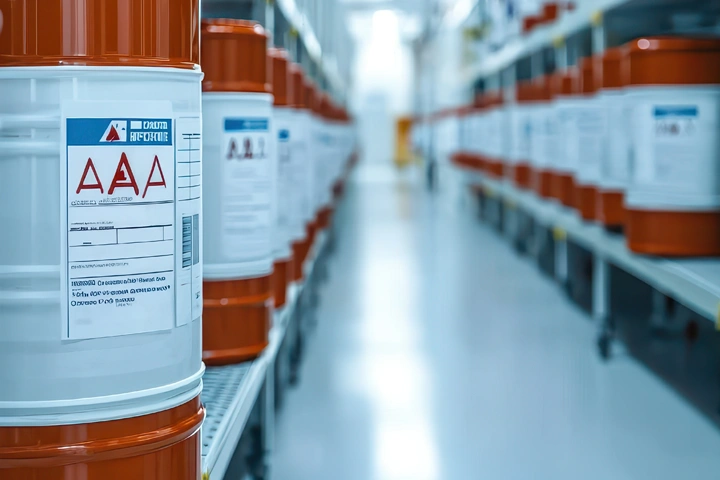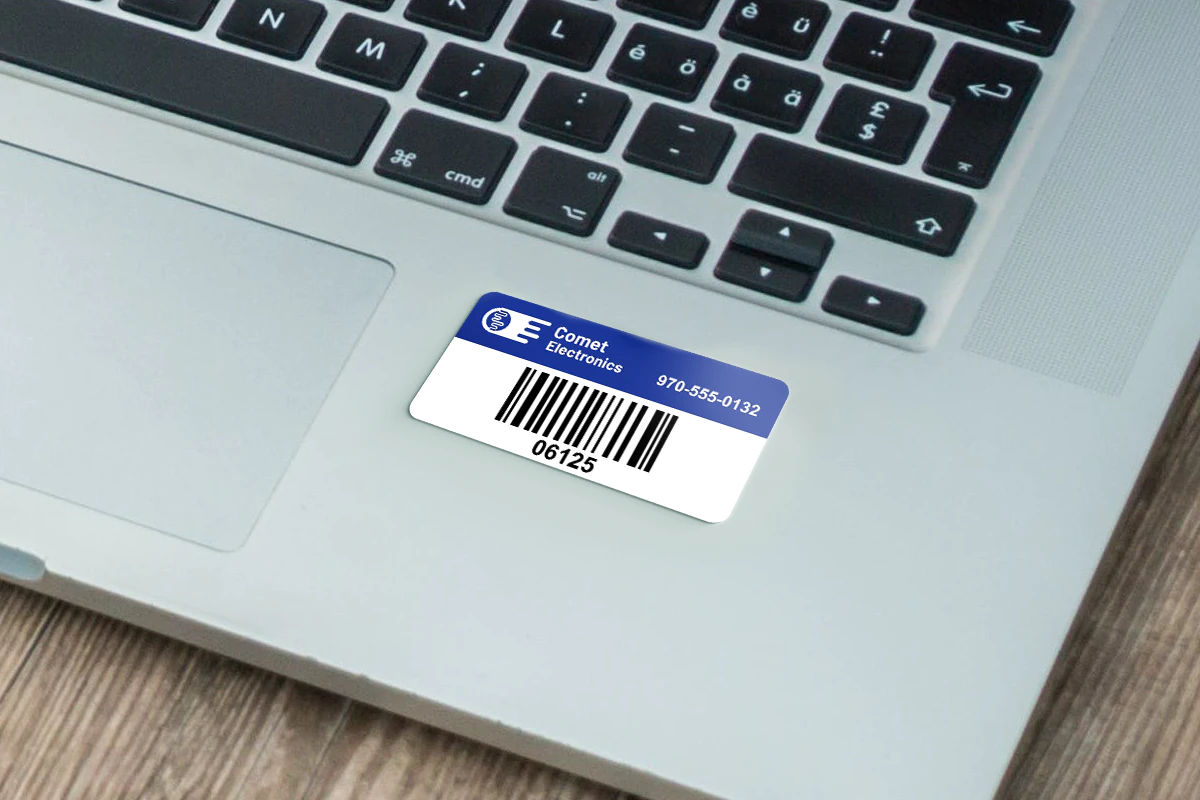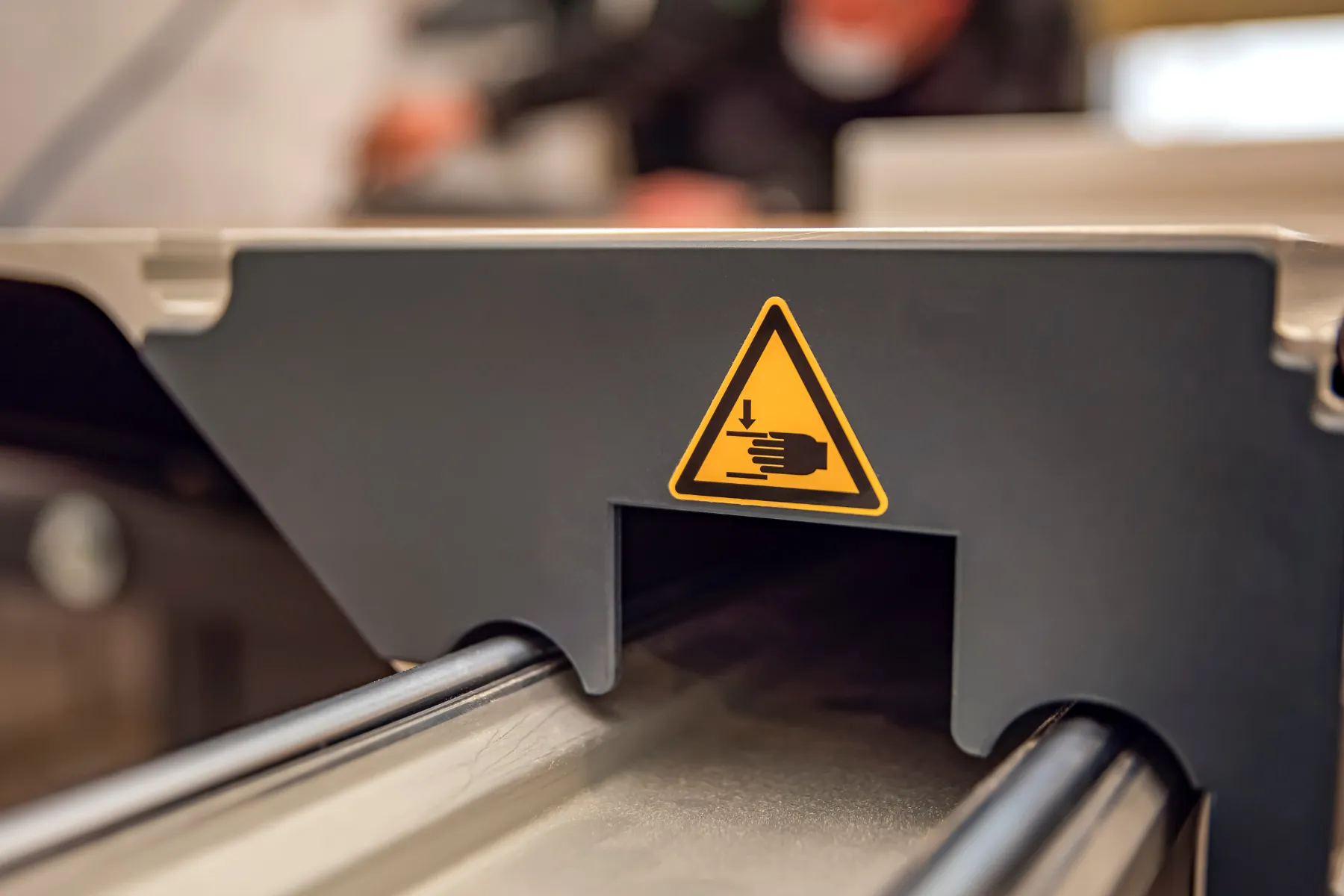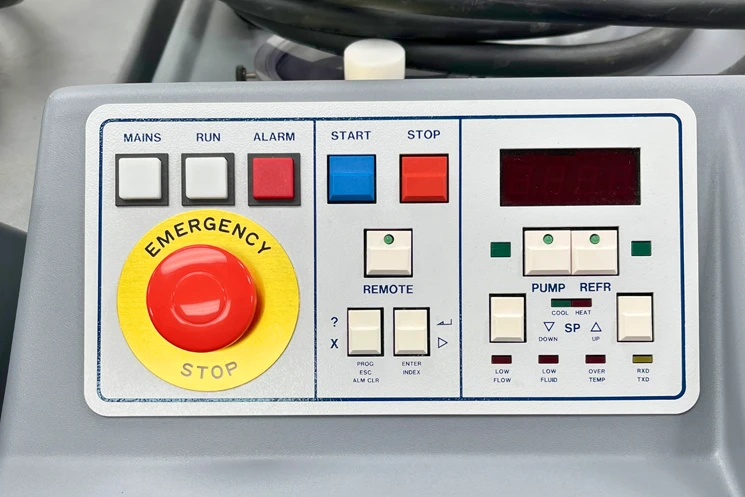An industrial labeling system helps businesses keep track of their inventory, assets, and equipment. These systems create durable labels that work in tough environments, such as factories, warehouses, and construction sites. Labels are made to last—they can handle heat, chemicals, moisture, and wear.
With features like barcodes, RFID labels, and thermal labeling, industrial labeling systems make it easier to organize and track items in real time. Businesses save time, reduce mistakes, and protect their equipment and inventory.
Whether you’re managing tools or keeping stock organized, an industrial labeling system can help you work smarter and faster.
What Is an Industrial Labeling System?
An industrial labeling system is a tool that creates serial number labels, barcode labels, and QR code labels for assets, inventory, or equipment. These labels contain essential details like serial numbers, barcodes, or QR codes, and some even use RFID technology for wireless tracking.
The system works by:
- Creating Labels: Labels are designed to include details like asset IDs or product descriptions.
- Printing with Durable Materials: Labels are made with materials that resist heat, moisture, or wear.
- Tagging Items: Inventory labels are attached to equipment.
- Tracking in Real Time: Barcodes or RFID readers scan the tags to update item details in an inventory management system or asset management solution.
With this process, businesses can stay organized and keep track of inventory and equipment more easily.
Why Is It Important?
Industrial labeling systems are important because they help businesses save time, stay organized, and avoid costly mistakes. Here are some key reasons why they’re essential:
1. Better Inventory Management
Labels make it easier to organize and track inventory items. For example, RFID or barcodes labels allow businesses to track stock in real time. This prevents overstocking or running out of items.
2. Easier Equipment Tracking
For industries like construction or manufacturing, it’s important to know where tools and machines are. Labels like asset tags can show an item’s location, who’s using it, and when it needs maintenance.
3. Saves Time and Money
Using a labeling system reduces time spent on manual tracking or inventory counts. Automation ensures fewer mistakes, saving money on replacements or missed items.
4. Works in Tough Conditions
Industrial labels are made to last. They can handle extreme environments, such as high temperatures, chemicals, or outdoor use. This durability ensures that your labels stay readable over the long term.
How Businesses Use Industrial Labeling
Industrial labeling systems are used across many industries. Here are some examples:
1. Manufacturing
Factories use labeling to track raw materials, tools, and finished products. For example, they can use thermal labeling for durable, clear tags or RFID solutions for real-time updates.
2. Warehousing
Labels on pallets or boxes make it easier to manage stock and shipments. Workers can scan the barcode to update inventory and reduce errors during packing and shipping.
3. Healthcare
Hospitals use labels to tag medical equipment, patient samples, and medications. The labels must be durable to handle cleaning and storage conditions.
4. Construction
For construction companies, durable labels help with equipment tracking. Construction labels can show where tools and machines are located and prevent loss or theft.
Key Features of Industrial Labeling Systems
Here are some features of industrial labeling systems that make them effective:
- Custom Labels: Businesses can design labels with their logo, asset ID, or QR codes.
- Durable Materials: Labels can withstand tough conditions like heat, chemicals, and outdoor use.
- RFID Technology: Use RFID readers for wireless tracking of inventory or assets.
- Thermal Printing: Produces clear, long-lasting labels that are easy to read.
- Mobile Apps: Employees can scan and update inventory on the go using apps.
What This Means for Your Business
An industrial labeling system is essential for businesses that need to organize, track, and manage their inventory and equipment. These systems save time, reduce errors, and work in even the toughest conditions.
Whether you’re using RFID labels, barcodes, or thermal labeling, industrial labeling systems provide a reliable way to improve operations and protect your assets. If you’re looking to save time and money while keeping your inventory under control, investing in a labeling system is a smart choice.
FAQs About Industrial Labeling Systems
It’s a tool that creates labels to track inventory, equipment, and assets. Labels can include barcodes, QR codes, or RFID tags to help businesses stay organized.
It makes tracking easier by tagging each item. Businesses can monitor inventory in real time, reduce errors, and avoid running out of stock.
Durable labels can handle harsh conditions, such as heat, chemicals, and moisture, without wearing out. This ensures the labels remain readable over time.
Yes, many industrial labeling systems use RFID technology for wireless tracking, allowing businesses to update inventory without manual scanning.



